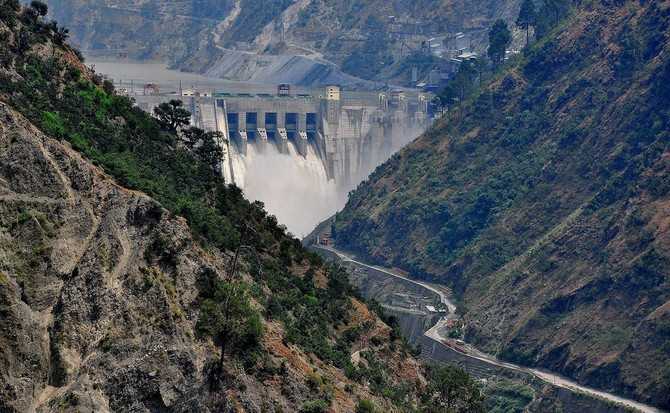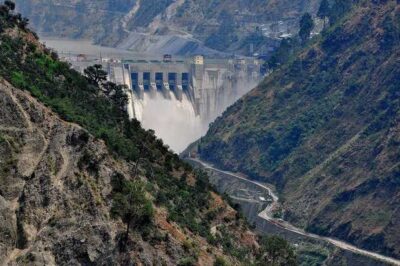
A Deadly Assault in Pahalgam
On April 22, 2025, a terrorist attack in Pahalgam, Jammu and Kashmir, resulted in the tragic deaths of 26 individuals, including 24 Indian tourists, one Nepali national, and a local guide. The assault occurred in the picturesque Baisaran Valley, a popular tourist destination. The Resistance Front (TRF), a proxy group of the Pakistan-based Lashkar-e-Taiba (LeT), claimed responsibility for the attack. India has accused Pakistan of supporting cross-border terrorism, leading to a sharp deterioration in bilateral relations.
India’s Diplomatic Retaliation
In response to the attack, India convened a meeting of the Cabinet Committee on Security (CCS), chaired by Prime Minister Narendra Modi. The committee condemned the attack in the strongest terms and decided on several punitive measures:
- Suspension of the Indus Waters Treaty: India announced the immediate suspension of the 1960 Indus Waters Treaty, which governs the sharing of water from the Indus River system. The treaty allocated the western rivers – Indus, Jhelum, and Chenab to Pakistan and the eastern rivers – Ravi, Beas, and Sutlej to India. India stated that the suspension would remain in effect until Pakistan credibly and irrevocably ceases its support for cross-border terrorism.
- Expulsion of Pakistani Diplomats: India declared all Pakistani military, naval, and air advisers in the Pakistani High Commission in New Delhi as “persona non grata” and ordered them to leave within a week. Additionally, India withdrew its own military advisers from the Indian High Commission in Islamabad and reduced the overall staff strength of the Indian High Commission in Islamabad from 55 to 30 by May 1, 2025.
- Closure of the Wagah-Attari Border: The only road crossing between India and Pakistan, the Wagah-Attari border, was closed with immediate effect. The integrated check post at Attari was shut down, and those who had crossed over with valid endorsements were allowed to return before May 1, 2025.
- Cancellation of SAARC Visas: India announced that all Pakistani nationals with South Asian Association for Regional Cooperation (SAARC) visas were required to leave within 48 hours. All previously issued SAARC visas were deemed cancelled, and Pakistani nationals would not be permitted to travel to India under the SAARC Visa Exemption Scheme.
Pakistan’s Response and Escalation
Pakistan condemned the terrorist attack and expressed condolences for the victims. However, it denied any involvement and rejected India’s accusations of cross-border terrorism. In retaliation, Pakistan took the following actions:
- Closure of Airspace: Pakistan closed its airspace to Indian airlines, effectively halting all Indian flights over its territory.
- Suspension of Bilateral Trade: Pakistan suspended all bilateral trade with India, further straining economic ties between the two nations.
- Warning of Retaliation: Pakistan warned that any attempt by India to divert shared river water under the Indus Waters Treaty would be considered an act of war. Pakistani officials emphasized that any threat to the country’s sovereignty or attempts to interfere with water flows would be met with a strong response.
International Concerns and Future Outlook
The escalating tensions between India and Pakistan have raised concerns among the international community. The Indus Waters Treaty, signed in 1960, has been a cornerstone of cooperation between the two countries, surviving multiple conflicts. The suspension of the treaty marks a significant deterioration in relations and could have far-reaching implications for regional stability.
Analysts warn that the unravelling of longstanding treaties could push the two nuclear-armed nations into uncharted diplomatic and confrontational territory. The diplomatic fallout threatens Pakistan’s already fragile economy, with fears over potential disruptions to water access critical to the nation’s agriculture and power needs.
As both nations continue to exchange retaliatory measures, the situation remains fluid. The international community is closely monitoring developments, hoping for de-escalation and a return to dialogue to prevent further conflict.
Conclusion
The Pahalgam attack has not only resulted in the loss of innocent lives but has also triggered a series of diplomatic and strategic responses between India and Pakistan. The suspension of the Indus Waters Treaty and the expulsion of diplomats signify a significant shift in bilateral relations. As both countries navigate this crisis, the global community watches closely, hoping for a peaceful resolution to prevent further escalation.








































Leave a Reply